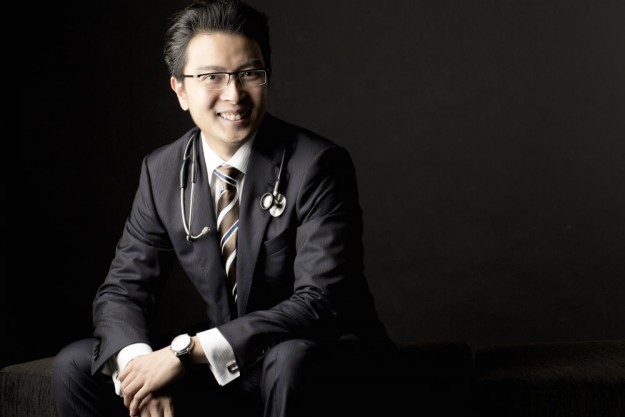Hair Loss: All you need to know from Dr Alvin Wong of SKN MediAesthetics
Before you start stressing out over thinning hair, read on to learn more about caring for your tresses and what you should take note of from Dr Alvin Wong.
Undeniably, the hair on our head is a beautiful crown of shining glory. So the sheer thought of losing any of it tends to be rather nerve wrecking. If it occurs in old age, perhaps less so but when it occurs prematurely, the nerves would instantly go into rapid overdrive.
Rather than stressing out further over potential loss of hair though - stress will only aggravate it - what you should instead find solace in is that there's hope to be found. For a healthy head of hair, it comes without question that first and foremost the key lies in having a good diet of essential vitamins and nutrients. Followed by ensuring that your scalp is in a good condition for products like shampoos and tonics to be applied and absorbed effectively. Thereafter, if the issues persists and the growth of hair doesn't improve, an appointment with a trichologist to get to the root of the problem should be arranged - as hair loss could also be a sign of an underlying medical condition.
So ultimately there's no reason to simply sit back and allow your hair to fall, especially where there are ready options available to take action. To give you an idea, we spoke to Dr Alvin Wong, Medical Director of SKN MediAesthetics to learn a little bit more about caring for our tresses and what you should take note of.
Marie France Asia: What should women look out for when it comes to hair loss?
Dr. Alvin Wong: The pattern of hair loss and whether it has been rapid in onset are some of the important first questions to ask. Others would include whether there is a family history of it. Recent stressful life events such as pregnancy and illness are relevant in some cases.
MFA: When should women seek help for hair loss?
A.W.: When hair loss first occurs, trying over the counter remedies might help. But if it remains persistent and worsening beyond 6 months, seeking help from a doctor familiar with hair loss treatments is important. Waiting too long for medical treatment can cause the problem to become difficult to reverse.
MFA: Should hair loss at a young age be a cause for concern?
A.W.: Yes. Hair loss occurs eventually in all women. However, this only begins to be a problem in most around menopause. If hair loss were to occur at a younger age, help should be sought urgently since there would be a lesser amount of hair reserve when the peak hair loss occurs later.
MFA: How common is hair loss amongst women in Singapore?
A.W.: According to a large survey amongst Asian women, 1 in 10 report hair loss. Of these women with hair loss, 1 in 5 were young, which is surprising as one would naturally think that only older women lose hair.
MFA: What are some of the causes of hair fall at a young age?
A.W.: Pregnancy, stress and medical problems such as thyroid disorders are the most common. If these persist despite over the counter remedies beyond 6 months, medical treatment with a doctor familiar with hair loss should be sought.
MFA: What can be done to resolve hair loss issues?
A.W.: This depends on the age group and the specific type of hair loss pattern. Seek medical help from a doctor familiar with hair loss if you are still losing hair despite over the counter treatment for 6 months.
MFA: Do hair supplements help?
A.W.: A well balanced diet is the most important. If in doubt, a multivitamin that concentrates on Vitamins B, D and essential minerals of iron, zinc and magnesium would certainly help.
MFA: Do we need to wash our hair everyday and does hot or cold water matter?
A.W.: This depends on the individual and the climate. Young active women in warm climates would need to shampoo at least once daily. Excessive oil on the scalp can increase the risk of seborrhoeic dermatitis and dandruff. This can exacerbate hair loss. On the converse, excessive shampooing can also cause dryness of the scalp and lead to flaking and itching. A balance is important. The temperature of the water should be based on individual preference.
MFA: How can we take better care of our hair?
A.W.: By maintaining a well balanced diet. Avoiding hair treatments that excessively stress the hair and scalp. Avoiding hairstyles that apply excessive pressure on the hair roots, for example tight ponytails and braids. Stopping smoking as this causes small blood vessel disease which kills the hair roots. Reducing stress and anxiety as these exacerbate hormone related hair loss patterns.




